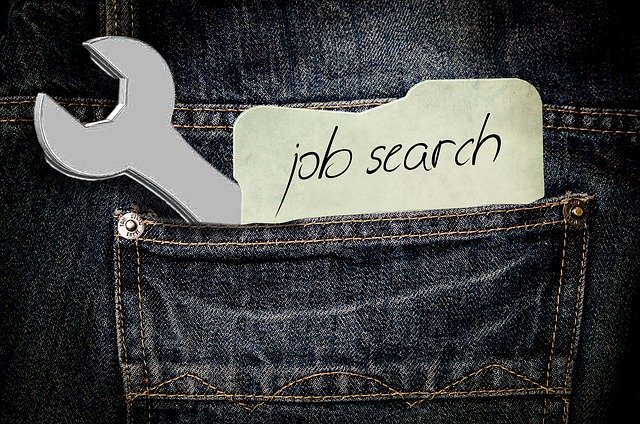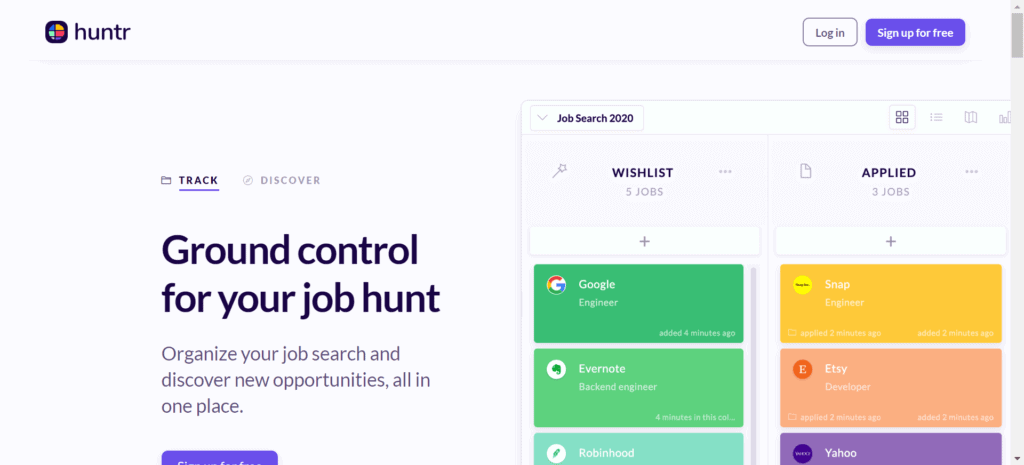With the erratic market situation brought about by a combination of external factors such as trade wars, governments’ leverage and, most recently, the Covid-19, it is hard to not have these affect our personal rice bowl.
These are things beyond our control.
What we could do is to better identify the situation and react as best as we can.
Unfortunately, many of us are not well-equipped to handle sudden loss in employments.
Primarily because we ignore our employability while we are gainfully employed.
It is akin to stop putting money regularly into your savings account when you still have an income.
When rainy days come, don’t expect to miraculously see millions in your bank statements.
Having said that, maintenance is a little late when one is already down and out.
I’ve seen this so many times when I was still in outplacement.
Especially for the people between 40 – 50.
Chances are you are in a role that is drawing comfortable pay.
But at that life stages, you are also financing a lot of stuff – e.g. car loan, your kids’ student loan, housing, etc.
The loans don’t go away when the income tap stops working and that of course would have a detrimental effect on how you react.
End of the day, getting back to employment is the key solution.
Any other problems could be worked out once you can put food on the table.
In this post, I will show you how I would approach my job search if I find myself suddenly unemployed.
This is based on my past experience in agency recruitment, career coaching and outplacement.
Many are hyperlinked to articles I wrote ages ago but the general message still resonates.
And if you think I’m speaking from an ivory tower, I personally had been retrenched twice and fired twice.
So I can empathize how it feels.
I hope you will find this guide useful.
Let’s dive in:
1. Look for signs
Retrenchments don’t happen overnight.

There will be tell-tales signs of things happening prior to that.
Some of it would include sudden lesser communication with your boss, long frequent meetings of the HR department and of course, when outsiders are talking about it.
[callout]READ: 19 Reliable Early Retrenchment Signs You Need To Know[/callout]
2. Get your tools
Job search is ultimately a sales activity.
You are selling yourself to the job market.
And with any sales job, you should impose KPI on yourself.
No sales people can operate well without their choice of salesforce.com.
For job search, use Huntr to track your job search activities.
3. Get ready
Before you even take the next step, you need to complete your grieving process.

There are 5 stages of grief – Denial, Anger, Bargaining, Depression and Acceptance.
I have seen, and still see, people who are stuck in denial or anger after years of unemployment.
You can never move on even if Facebook headhunt you to replace Zuckerberg.
Otherwise you will end up becoming very unemployable.
[callout]READ: Unemployability: 9 Traits That Will Make You Unemployable[/callout]
Talk to friends, families, get it out of your system and accept the situation.
This is 2020, there is no shame in being a victim.
In doing so, you will also be able to get help.
In Singapore context, that would mean getting support from WSG or it’s affiliated agencies.
Look, I know some of you are skeptical about their effectiveness.
That they are all wayang (for show) and not effective.
That may be true to some extent but I much prefer someone to be on my side rather than being a rambo on my job search journey.
It is somewhat like Multi-Level Marketing.
You want to achieve that network effect on your own job search. MLM cannot be done by one person.
But make sure you have completed your grieving process.
Otherwise, any valuable conversation with career coaches will just turn them into sponges to absorb your incessant complaining.
[callout]READ: 23 Job Search Hacks To Get You Hired[/callout]
4. Identify your Product-Market Fit
A startup term it means how good of a fit you are to the market you are targeting.

There are two ways to approaching the job search.
Either you find something you are good at (supported by the relevant experience you built up) or you do a career transition.
Regardless, you want to identify your hard and soft skills (features). This will help you to build up a case on your companies should consider you (use case)
I would suggest a combination of assessments such as Clifton Strengths, DISC and MBTI.
But don’t take it wholesale. Validate the results with close friends so you know it is really accurate.
If you are going for a career transition, be prepared for a pay cut. There is no exception.
Many people think that they are guaranteed a job if they put in the hours to undergo the training.
That isn’t the case.
Look at any undergrads. None of them is guaranteed a job just because they have a degree. It is no different from a training diploma which should be less challenging than a degree.
You need to clock experience.
The only person i had seen making the transition worked volunteered for a free internship to gain 6 months of data analytics experience.
He did it to supplement his newly acquired cert in data analytics.
Eventually, his hands-on experience helped him to edge out his peers at the assessment tests and he made the transition successfully from a geothermal engineer to a data analyst.
[callout]READ: 5 Things You Need To Know Before Career Switching[/callout]
5. Put together your sales kit
This would be your resume.
Image by Free-Photos from PixabayThere are plenty of resources online about how to piece your resume together.
Here’s mine.
You can also outsourced it to professional like resumewriter.sg.
Job applications today are read by machines before humans.
Make sure your content is optimized for that.
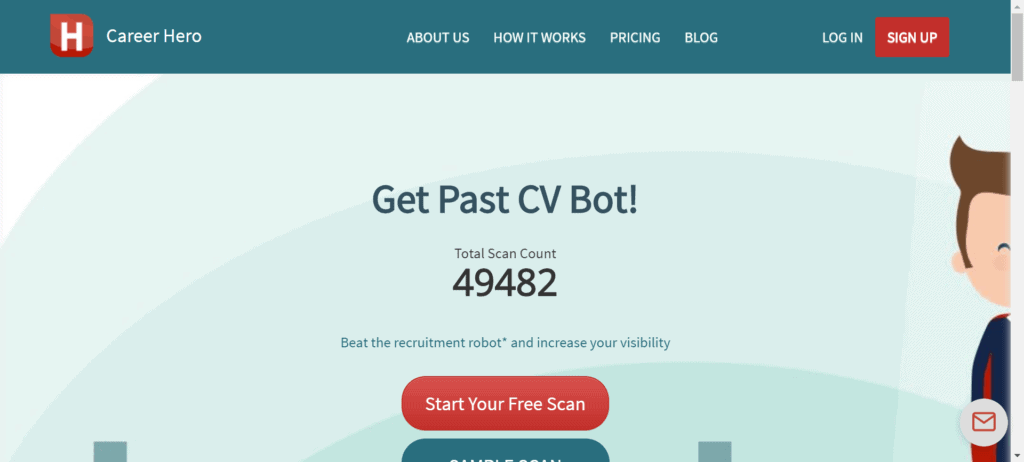 http://careerhero.asia/
http://careerhero.asia/6. Leads generation
Update and complete your LinkedIn profile.
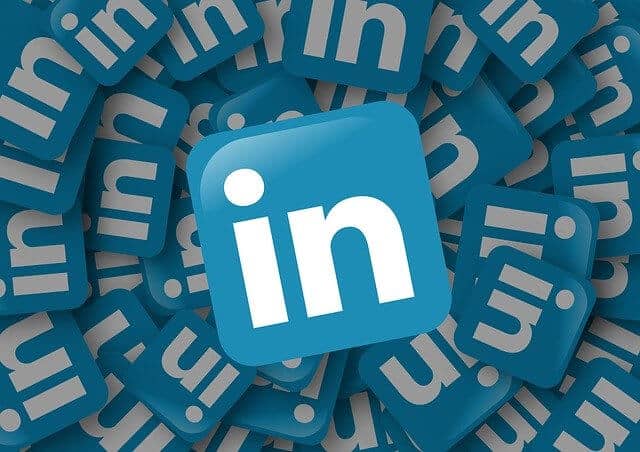
Make sure you have some recommendations on your profile so as to stand out.
Getting recommendations is tough.
A hack is to give it to someone so that he or she is beholden to write one for you in return.
If you are experiencing writer’s block, use this to generate the recommendation for your target.
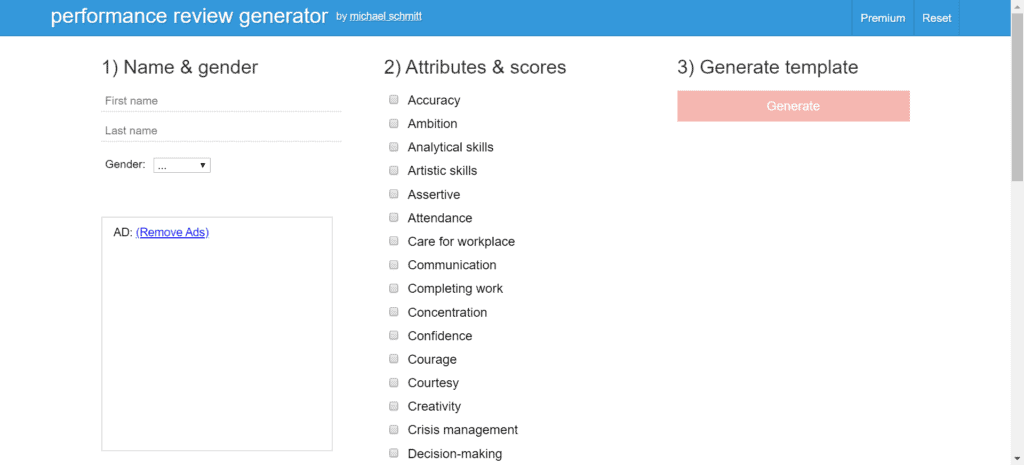 https://mschmitt.org/performance/
https://mschmitt.org/performance/With that, you want to start prospecting by connecting with relevant recruiters and people that are in your target roles/companies.
LinkedIN is a networking medium which means the more people you are connected with, the larger your future search results would show.
Start by adding me to your LinkedIn.
I have 20,000+ connections and each of these would become your 2nd level once we are connected.
[callout]Connect with me on LinkedIn[/callout]
For everyone else, there is the manual way of 3 clicks per profile you wish to connect with or you could automate it with LeadConnect.
I would highly suggest using the paid version (use Promo code ADRIAN10) and get the highest plan for at least a month.
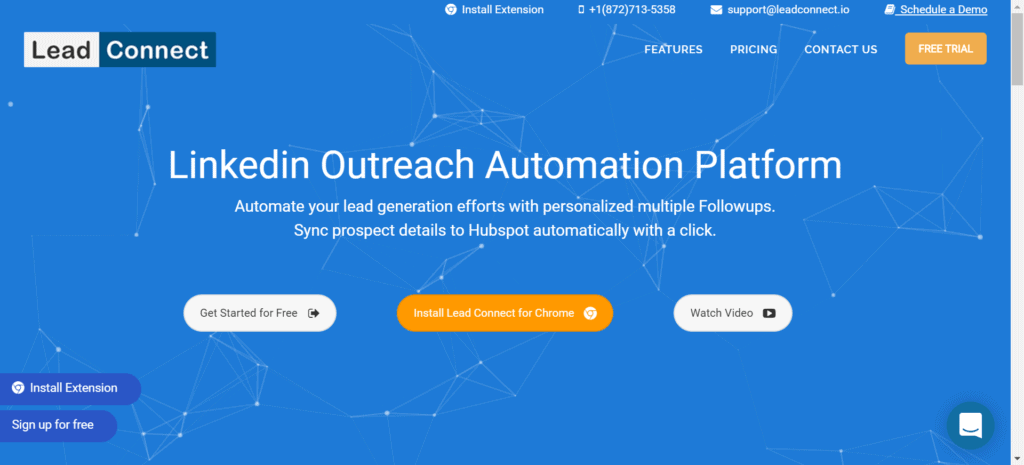 https://leadconnect.io/
https://leadconnect.io/Each month, LeadConnect could help you send out 100 invites per day automatically.
There are two groups of people you want to connect with:
- Specialist recruiters
- People currently in your target roles
But before you start, you need to get your pitch right.
In the startup world, there is a saying that if you ask for money, you get advice. If you ask for advice, you get money.
Similarly, many job seekers jump in straight asking for a job but ended up with advice (if they are lucky). Mostly, they would be ignored.
Instead, approach them and ask for career advice over coffee that you will buy.
My former clients that tried this, 60% of the respondents would reply and half of those would entertain a meet-up.
Remember to maintain your pitch of career advice.
If there are suitable openings in their companies in the future, you can leverage on that new relationship to get a referral.
A referral by an employee ranks higher than a cold job application.
This is only for LinkedIn.
If you are looking to scale your job search through applications, you can check out https://www.jobhunter.sg/
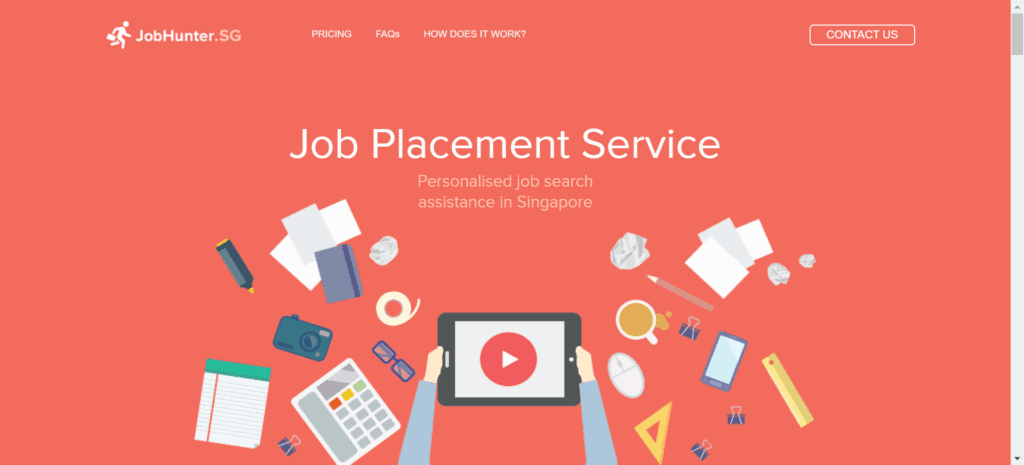 https://www.jobhunter.sg/
https://www.jobhunter.sg/[callout]READ: How To Get Onto Headhunters’ Radar Automatically[/callout]
7. Content Marketing
Regardless of your employment status, I always recommend that you have a personal employment strategy in play.

This will help you to maintain your edge and over time, people will see you as an expert.
It is how I landed in my current role at PeopleStrong – through my writing.
You don’t need to get your own domain if that is too much.
Start by writing on LinkedIn.
If you cannot think of what to write about, you can begin by writing your opinions on your subject matter.
Say you are a Mechanical Engineer and there is a recent mechanical failure that resulted in another MRT delay.
This is the opportunity to write about it, to share with the general audience that are non-engineers and what they could do about to improve the situation.
If you need reference on what is an opinion versus what is information, just make reference to the Facebook page of Singapore politicians.
The oppositions tend to write on opinions and the incumbent very much informational.
For those who are brave enough, seek out speaking engagements to quickly accelerate your standing.
It is very easy to find them online and reach out to the event organizer (Although they would make reference to you online to ensure you are an expert first of all).
If speaking is too nerve-wracking, go with moderating. It is much easier and you are simply asking questions.
But I have also seen moderation being screwed up as moderators become linear with their questions.
My personal hack is to reach out to the panelist beforehand and ask them what it is they want to talk about.
Then reverse those answers into your questions and try to chain them up so it seems very natural.
Ultimately it is best to get your own website as you won’t be at the mercy of algorithm changes by the big social media companies.
My current website has over 164,985 views in 2019 alone.
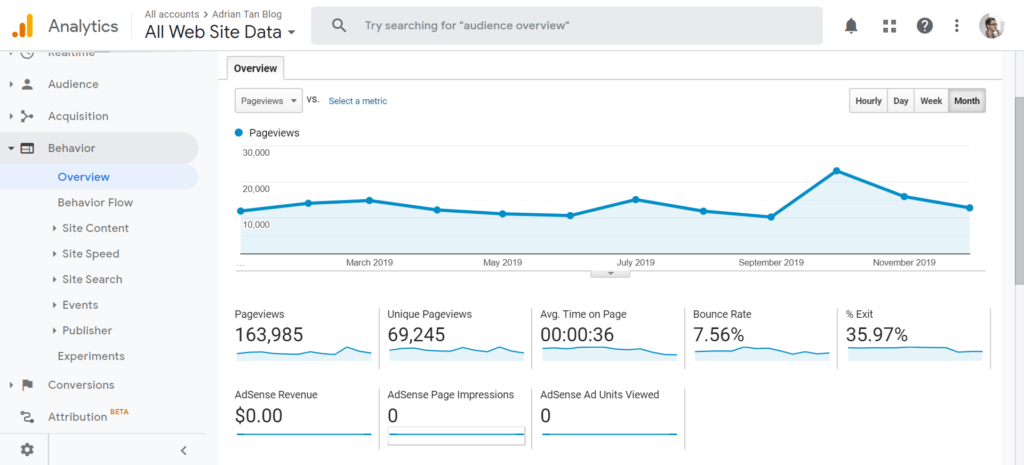
8. Sales Demo
Or the job interview.
Start with addressing the elephant in the room.

Interviewers will notice your age.
They will notice the huge gap between employment.
Address it before they ask will exude confidence at the very least.
Be prepared for common interview questions beforehand. Such as:
- Tell me about yourself
- Biggest weakness
- Biggest strengths
- Where do you see yourself in 5 years
- Why should we hire you
- Why do you want this job
- What is your biggest professional achievement
Try to align your answers to the core values of the company you are interviewing for.
Hence if innovation is a core value, my answer to why I want this job is because I admire the emphasis on innovation in the company.
Or when it comes to my biggest professional achievement, I would cite something that applies innovation.
Back everything with anecdotal examples that can be quantified.
When it come to weakness, remember a weakness is what is was before it became a strength.
Cite something that you were bad with and finish with what you have done or is doing to rectify.
9. Daily activities
A sale doesn’t get closed with just one prospecting target.

Usually the law of large numbers would require you to start with a large base and funnel them down your pipeline.
Fortunately in your personal sales, you just need to have one closure.
Work backwards to figure out how many interviews you need to do, how many applications you need to send and how many people you need to meet.
Break it down to a daily activities and keep yourself accountable so you don’t fall off your execution.
[reminder]Any other job search tactics that I missed out?[/reminder]

